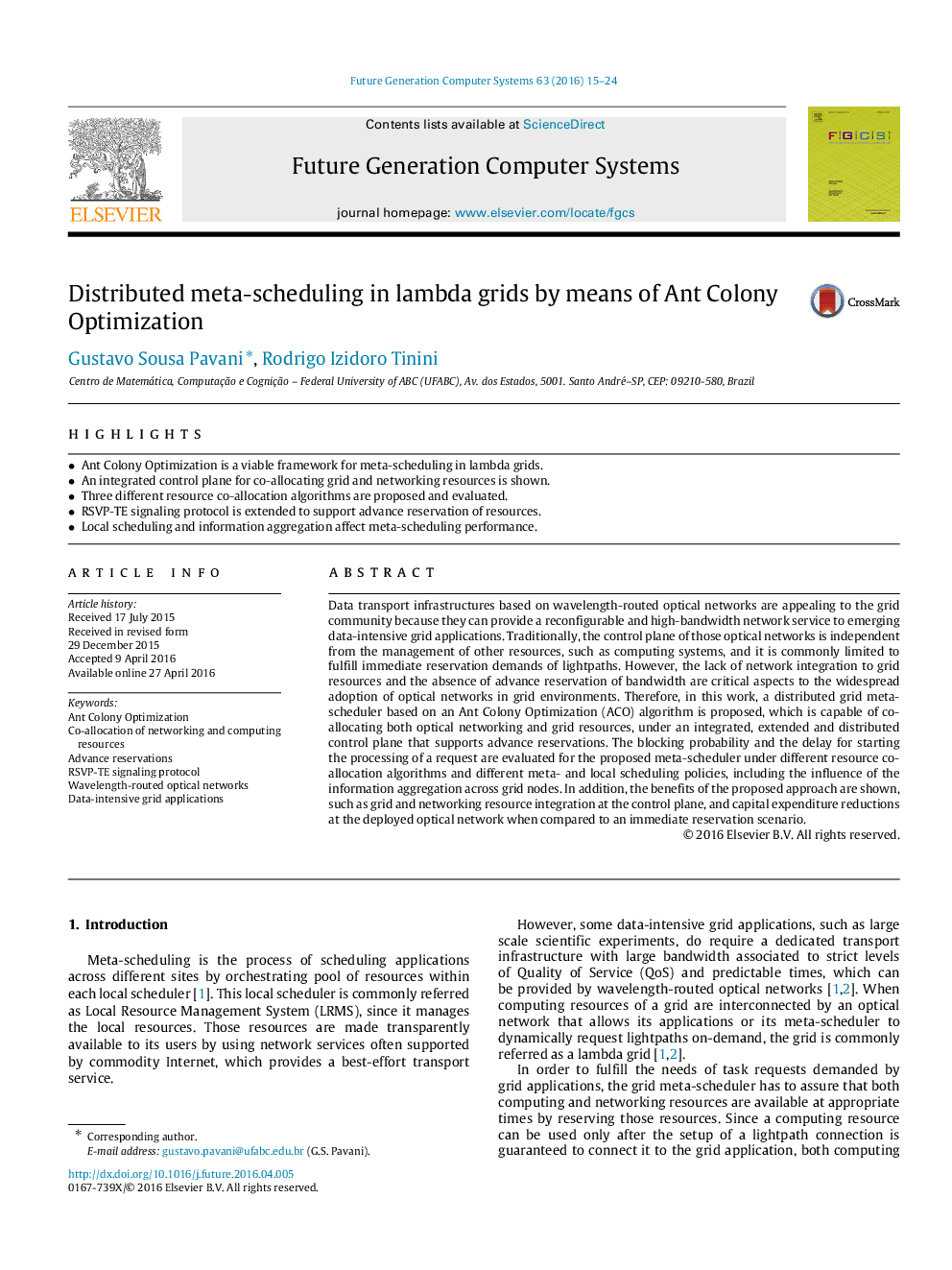| Article ID | Journal | Published Year | Pages | File Type |
|---|---|---|---|---|
| 424505 | Future Generation Computer Systems | 2016 | 10 Pages |
•Ant Colony Optimization is a viable framework for meta-scheduling in lambda grids.•An integrated control plane for co-allocating grid and networking resources is shown.•Three different resource co-allocation algorithms are proposed and evaluated.•RSVP-TE signaling protocol is extended to support advance reservation of resources.•Local scheduling and information aggregation affect meta-scheduling performance.
Data transport infrastructures based on wavelength-routed optical networks are appealing to the grid community because they can provide a reconfigurable and high-bandwidth network service to emerging data-intensive grid applications. Traditionally, the control plane of those optical networks is independent from the management of other resources, such as computing systems, and it is commonly limited to fulfill immediate reservation demands of lightpaths. However, the lack of network integration to grid resources and the absence of advance reservation of bandwidth are critical aspects to the widespread adoption of optical networks in grid environments. Therefore, in this work, a distributed grid meta-scheduler based on an Ant Colony Optimization (ACO) algorithm is proposed, which is capable of co-allocating both optical networking and grid resources, under an integrated, extended and distributed control plane that supports advance reservations. The blocking probability and the delay for starting the processing of a request are evaluated for the proposed meta-scheduler under different resource co-allocation algorithms and different meta- and local scheduling policies, including the influence of the information aggregation across grid nodes. In addition, the benefits of the proposed approach are shown, such as grid and networking resource integration at the control plane, and capital expenditure reductions at the deployed optical network when compared to an immediate reservation scenario.
